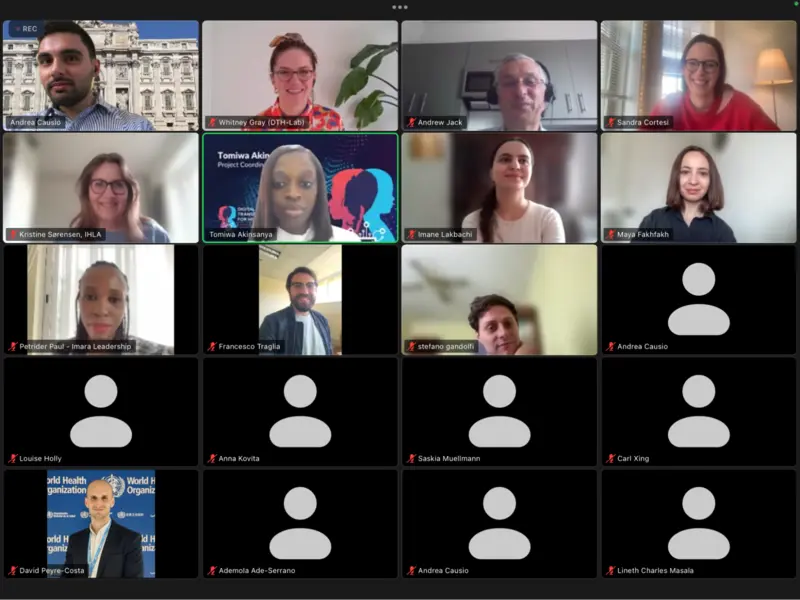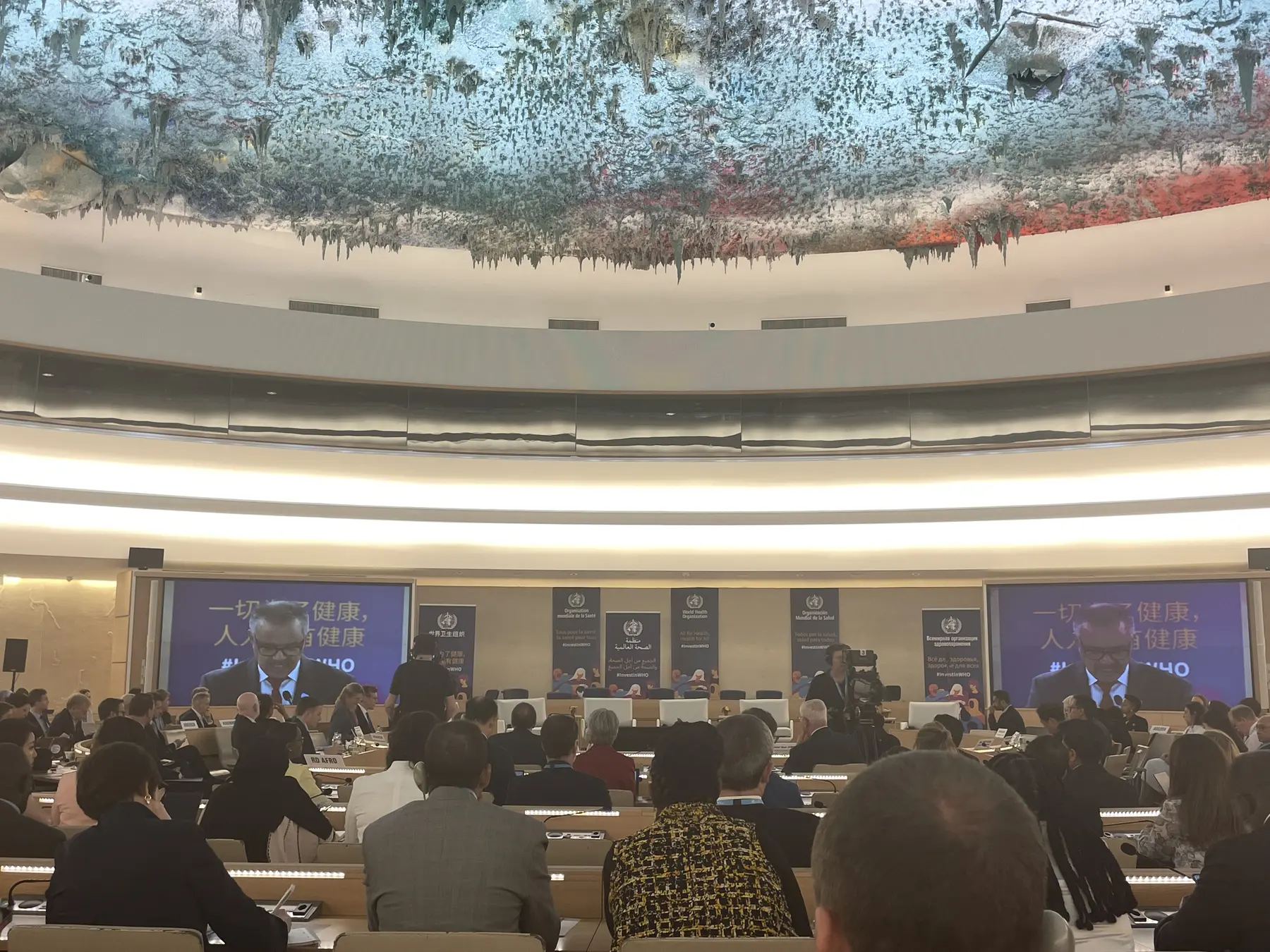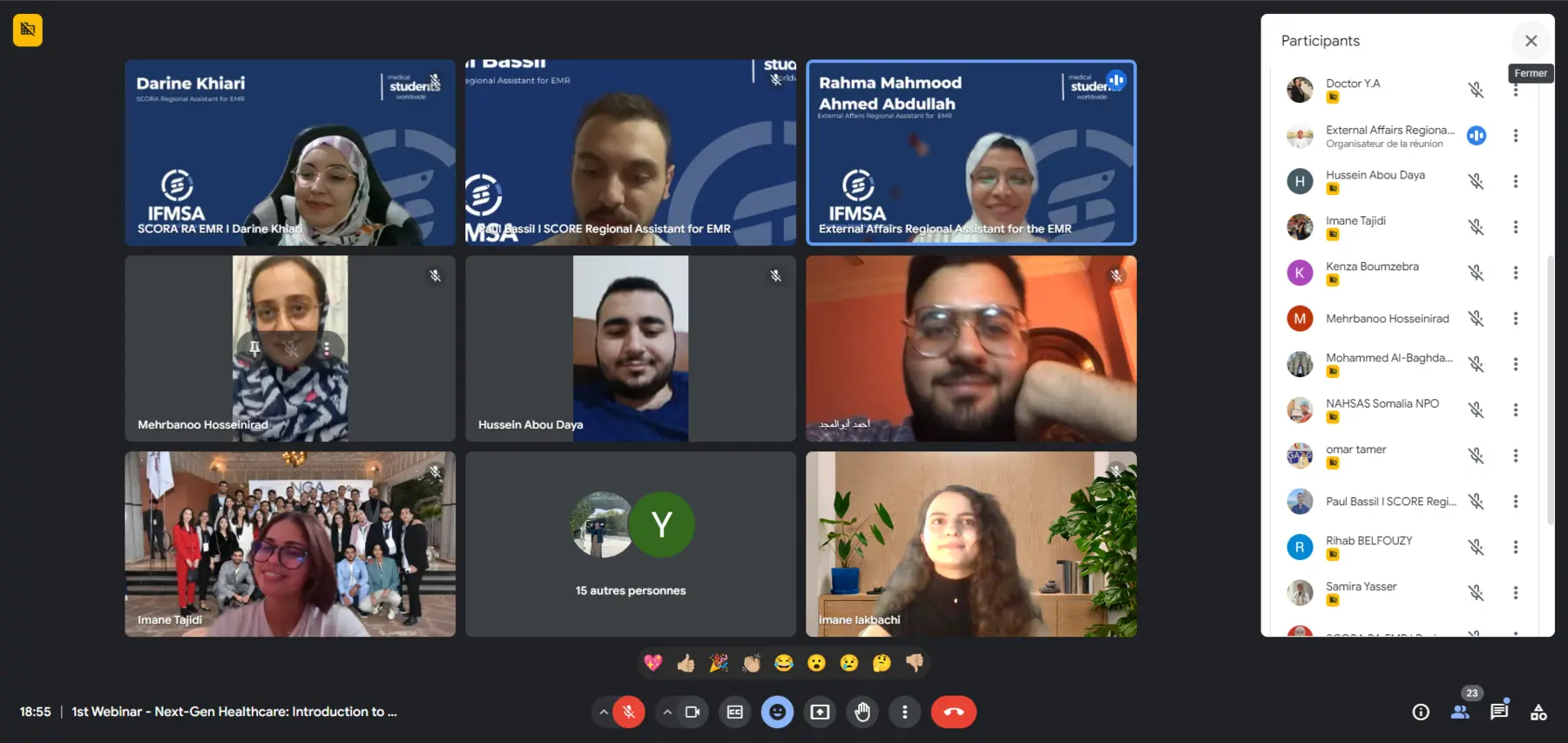Digital Health Citizenship (DHC) emerges from the intersection of digital transformations, health, and citizenship. Recognising that individuals have rights, responsibilities and agency in the digital health landscape, digital health citizenship promotes active participation, informed decision-making and ethical use of digital health technologies and platforms that support improved health and well-being.
Enfranchising young people to co-design and critically engage with digital first health systems is a core project of the Digital Transformations for Health Lab (DTH-Lab) as part of efforts to increase public participation and advance digital health citizenship. The DTH-Lab is partnering with youth-led organisations to assess the current perception of digital health citizenship in support of the co-creation of desired health outcomes, promotion of youth leadership and empowerment of a generation of informed and enfranchised digital health citizens.
The DTH-Lab in collaboration with the Young World Federation of Public Health Associations (YWFPHA) co-hosted a Global Public Health Week intergenerational dialogue entitled “Digital Health Citizenship: Advancing Digital, Health and Civic Literacy » on Tuesday 9 April 2024.
The event highlighted the importance of empowering young people as a generation of enfranchised digital health citizens through improved investment and action. The DTH-Lab launched the Digital Health Citizenship Survey to evaluate the existing perception of digital health citizenship and to assess the key asks of young people on current gaps in knowledge in the digital, health and civic spaces.
The informal setting of the intergenerational dialogue promoted inclusivity and allowed participants to pose questions and raise their concerns to the speakers directly. Moderated by the DTH-Lab’s Project Coordinator Tomiwa Akinsanya and YWFPHA’s Andrea Causio, speakers included opening remarks by Whitney Gray, Youth Engagement Coordinator of the DTH-Lab, Kristine Sorensen Executive Advisor and Founder of Global Health Literacy Academy, Petrider Paul Board Member at Imara Leadership Initiative, Imane Lakbachi Regional Youth Champion DTH-Lab, Sandra Cortesi Fellow at the Berkman Klein Center and the Director of the Youth and Media project, and Andrew Jack Global Education Editor Financial Times. The dialogue allowed speakers to share success stories and priority areas that need to be strengthened if DHC is to be realised. This event stood out for providing open dialogue for experts and participants to discuss digital health citizenship, present initial findings on the Digital Health Interventions Impact on Health Literacy from the YWFPHA and launch the DHC survey for young people.
Key takeaways
Many young people believe they lack the necessary skills, resources, and opportunities to fully embrace their potential roles as digital health citizens. This underscores the significance of education as a means of empowerment. Sandra Cortesi, Executive Director of the Youth and Media Project at Berkman Klein Center for Internet Society at Harvard University shed light on beneficial approaches to creating interventions for young people, “we need to look at the range of tools we have available and think more about leveraging educational approaches, especially when we consider young people [standing] at the intersection of digital technologies.”
Cortesi emphasised the speed at which things change in the digital space. Technologies evolve and so do the ways in which young people use them. This must be better reflected in the policies deployed. She emphasized that by the time policymakers and legal scholars develop and begin to action policies the tools have changed and the behaviors of young people may also be different. So, while policies and regulations are needed, it is far from the only approach needed when striving to improve digital citizenship. Education is crucial in promoting digital, health, and civic literacy both from a top down and a bottom up approach.
Kristine Sorensen, Executive Advisor and Founder of the Global Health Literacy Academy emphasized the importance of governmental commitments and investments towards enhancing health literacy within educational institutions. Soresen stated, “Unfortunately it’s not every government that takes health literacy as a political choice, I’m still wondering why we don’t have health and well-being as a subject in school. I hope that in the future we have schools where health and well-being are placed in the curriculum as a subject like Geography, Mathematics, and Biology, and although physical education is a good starting point, it simply is not enough. This is the starting point, this is the mission ”.
Imane Lakbachi, DTH-Lab Regional Youth Champion, pointed out that insufficient information and data act as obstacles for women and young girls in Morocco and beyond to become empowered digital health citizens.
“Lack of information and data available to women and girls are significant barriers to their independence in the MENA region. A lot of women and girls have limited access and awareness of how policies are developed and how they are implemented or how they can participate in the process. This limits their ability to advocate for policies that affect their needs and reflect their interests and overall well-being.” – Imane Lakbachi
Further emphasizing that all stakeholders must take collective responsibility in establishing ethical, digital and data governance structures to promote equitable health outcomes. Petrider Paul, Board Member of Imara Leadership Initiative, urged collaboration between stakeholders. Such collaborations drive the advancement of digital health citizenship through the effective use of digital technologies that empower people to participate in the design and governance of digital transformations for health.
Through the promotion of digital health citizenship people are enabled to participate in the design and governance of digital transformations of health and to co-create digital environments that promote equitable health and well-being. Andrew Jack, Global Editor of the Financial Times highlighted the need for technology and education to be cross-cutting when trying to improve the health and well-being of young people. “There is a pressing need to ensure fair and equitable access to technology, while also emphasizing its responsible use to promote digital health citizenship.”
YWFPHA Scoping Exercise
An international team from the USA, Turkey, Tunisia, India, Canada and Italy is conducting a significant systematic review titled “Digital Health Interventions’ Impact on Health Literacy.” Maya Fakhfakh, Young World Federation Public Health Association, shared the preliminary findings of the review highlighting a key objective of better understanding how digital tools are transforming health literacy, a fundamental component for effective public health outcomes in a digitally connected world.
This ongoing double-blind review adheres to the Preferred Reporting Items for Systematic Reviews and Meta-Analyses (PRISMA)[1] guidelines and is framed by the WHO Classification of digital interventions, services and applications in health[2]. Currently, the team is finalising the data extraction phase with plans to assess the impact and analyze the efficacy of a range of digital health interventions.
This contribution is substantial as we engage in conversations about empowering young and diverse populations to shape the digital health landscape as informed, proactive citizens in their health management. With the pressing need to address the digital divide the review hopes to push fair and equitable access to technology offering insights that support the creation of more inclusive digital health environments and facilitating equitable access to health information and services.
The insights collected thus far aim to advance the discourse on digital health citizenship while underscoring the potential of digital technologies to enhance health literacy across diverse demographic segments. The evidence-based conclusions drawn from this systematic review will inform policy and practice, guide healthcare policymakers and practitioners on which digital strategies are most effective for enhancing health literacy and optimize health outcomes.
Conclusion
Underscoring the various issues in promoting digital health citizenship highlighted by the intergenerational dialogues, we call upon governments, international organizations, and other stakeholders to create concrete actions that aim to empower young people to become enfranchised digital health citizens by implementing the following recommendations:
Learn more and get involved

[1] Page MJ, McKenzie JE, Bossuyt PM, Boutron I, Hoffmann TC, Mulrow CD, Shamseer L, Tetzlaff JM, Akl EA, Brennan SE, Chou R, Glanville J, Grimshaw JM, Hróbjartsson A, Lalu MM, Li T, Loder EW, Mayo-Wilson E, McDonald S, McGuinness LA, Stewart LA, Thomas J, Tricco AC, Welch VA, Whiting P, Moher D. The PRISMA 2020 statement: an updated guideline for reporting systematic reviews. BMJ. 2021 Mar 29;372:n71. doi: 10.1136/bmj.n71. PMID: 33782057; PMCID: PMC8005924.
[2] WHO. Classification of digital interventions, services and applications in health: a shared language to describe the uses of digital technology for health, 2nd ed (2023).

Maya Fakhfakh, As a medical graduate from Tunis, Tunisia, with a Master’s in Public Health from Université Laval in Québec, Canada, Maya is dedicated to integrating digital health interventions, clinical practice and patient engagement to foster a holistic, equitable, and inclusive healthcare system, especially for vulnerable populations.




Sign up to our newsletter to stay updated on news, insights, and career opportunities.
© 2024 DTH-Lab. All Rights Reserved.
Privacy Policy
Terms & Conditions
Cookie policy
Credits
Tomiwa Akinsanya, Project Coordinator at the Digital Transformations for Health Lab, is passionate about using digital technologies and innovative behavioral sciences to enhance global youth health. Tomiwa has worked with respected organizations dedicated to advancing digital health and youth well-being globally. With almost a decade of experience, a B.Sc in Physiology and a Masters in Public Health, she applies specialized skills in research, project management, communication, stakeholder management, and advocacy to improve health systems for the benefit of all. Her core values are aligned with Innovation, Empathy, Creativity, Integirty, Team Work and Excellence.
Whitney Gray is the Youth Engagement Coordinator at the Digital Transformations for Health Lab. She has a degree in pre-medical biology and medical ethics and holds two Masters degrees in Public Health and International Affairs. Ms Gray’s experience includes biomedical research, health systems strengthening, global health governance and civil society engagement. With a longstanding desire to advance the health and wellbeing of all, she works to improve the inclusivity of actors in the design and implementation of research, policy and solutions for health.